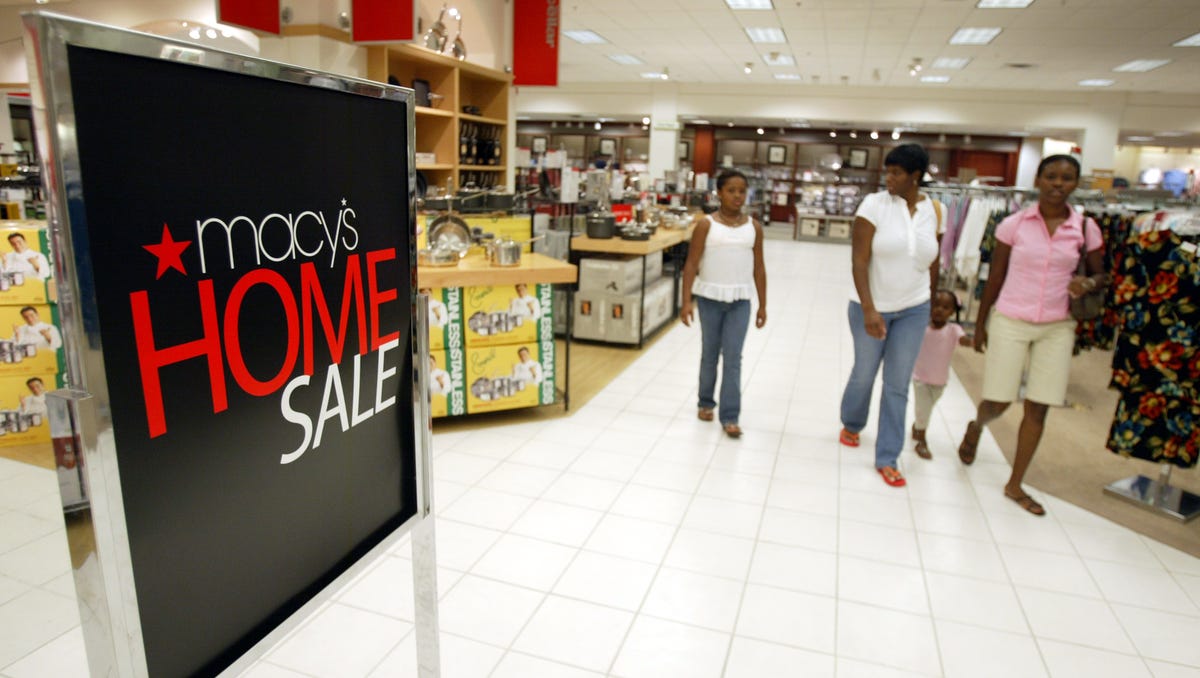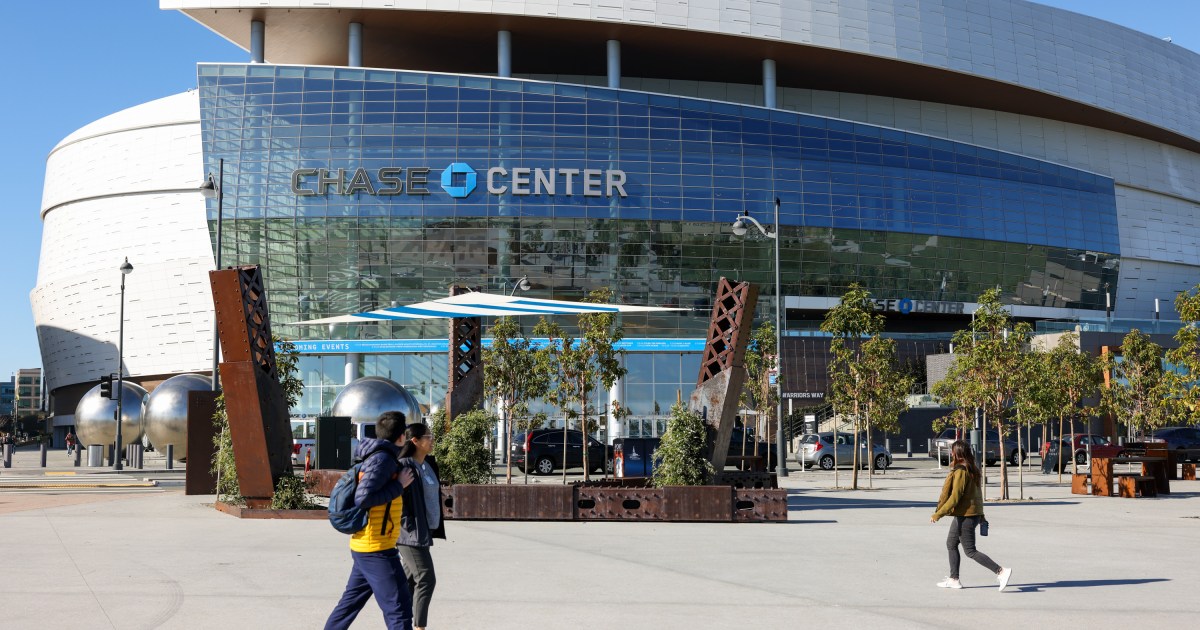SPRINGFIELD, La. — Arliya Martin accepted her high school diploma with relief and gratitude.
Louisiana
Diplomas for sale: $465, no classes required. Inside one of Louisiana’s unapproved schools

But Martin didn’t take any classes or pass any tests to receive her degree. She got it in July from a school where students can get a high school diploma for $465.
Unlike public schools, formal homeschooling programs or traditional private schools, nearly 9,000 private schools in Louisiana don’t need state approval to grant degrees. Nearly every one of those unapproved schools was created to serve a single homeschooling family, but some have buildings, classrooms, teachers and dozens of students.
While unapproved schools account for a small percentage of the state’s students, those in Louisiana’s off-the-grid school system are a rapidly growing example of the nation’s continuing fallout from COVID-19: families disengaging from traditional education.
U.S. public school enrollment fell by more than 1.2 million students in the first two years of the pandemic. Many switched to private school or told their state they were homeschooling. Thousands of others could not be accounted for at all, according to an analysis from The Associated Press and its partners.
The students in Louisiana’s off-the-grid school system aren’t missing. But there’s no way to tell what kind of education they’re getting, or whether they’re getting one at all. Over 21,000 students are enrolled in the state’s unapproved schools, nearly double the number from before the pandemic, according to data obtained through a public records request by the AP and The Advocate, a partner news outlet in Louisiana.
To supporters of the system, avoiding state oversight is entirely the point. Advocates say Louisiana’s unapproved schools are a natural extension of the doctrine of parental rights.
The place where Martin got her diploma, Springfield Preparatory School, bills itself as an umbrella school for Christian homeschoolers. Most students there do attend the school to work toward an education through actual classes or tutoring.
However, principal Kitty Sibley Morrison is also willing to grant a diploma to anyone whose parents say they were homeschooled, even years earlier.
“Sometimes it takes two or three times to explain to them that they are free,” Sibley Morrison said. “Their parents are in charge of them, not the state.”
Sibley Morrison says she is not selling diplomas, but rather lifetime services for homeschooling families.
“We’re not here to make money,” she said.
Yet a list of prices is taped to the front window of the school building: $250 for diploma services, a $50 application fee, $35 for a diploma cover and $130 to walk in a cap and gown at a ceremony.
The number of students in unapproved private schools like Springfield has nearly doubled, from around 11,600 in the 2017-18 school year to over 21,000 in 2022-23, according to state records.
There’s precious little information available about these schools, which the state calls “nonpublic schools not seeking state approval.” To start one, an adult must only report their school’s name and address, their contact information and how many students they have. Some schools have whimsical names such as the “Ballerina Jedi Academy” and the “Unicorn Princess School.” Others proclaim their independence with names like “Freedom First.”
Most of the schools are tiny, single-family home schools. However, last year, 30 of Louisiana’s unapproved schools reported they had at least 50 children enrolled.
There is no way for the government to verify safety, quality or even whether a school exists, said Laura Hawkins, a former state Department of Education official who worked on its school choice efforts up to 2020.
The department warns parents on its website that it cannot confirm whether these organizations even meet the legal definition of a school.
“We didn’t want to give parents or anyone a false sense that we knew anything about these schools, should they exist,” Hawkins said, “that we could attest to their safety, that we could attest to their actual educational program, anything.”
Louisiana has two options for homeschooling.
Parents who want their child to receive a state-recognized high school diploma can apply for the official home study program. They must submit documentation such as test scores or copies of the student’s work to show their child has received 180 days of schooling at the same quality as a public school’s. The state-recognized diploma is more widely accepted by colleges and allows students to qualify for a popular in-state scholarship program.
Alternately, families can set up their own private school without asking for state approval. There are no requirements to prove a child is getting an education. In fact, these schools don’t even have to submit the names of the students who are attending.
At least two unapproved institutions have had abuse scandals, but the state Department of Education says it has no authority to do anything in response.
“By law, the LDOE does not have oversight over these schools,” said Louisiana Department of Education spokesperson Ted Beasley.
One of the most infamous is T.M. Landry in Breaux Bridge. A 2018 New York Times investigation found the school abused kids and made up transcripts to get students into Ivy League schools. It was still open as of last school year with 15 children, according to state records. Another unapproved school in Baton Rouge, Second Chance Academy, has come under scrutiny since its head teacher was arrested on charges of sexually abusing students.
Louisiana’s unapproved private schools came into being in 1980 when Christian ministers who ran small private schools joined forces with the budding homeschool movement to push for the deregulation of private education. Lawmakers eliminated the requirement for private schools to have at least 50 students and state-certified teachers.
Opponents have tried on multiple occasions to get the law repealed but faltered in the face of lobbying efforts from Christian homeschool groups.
Today, over a dozen states allow families to open a private school as a form of homeschooling, including California, Illinois and Texas, according to the Home School Legal Defense Association. Around half the states require those schools to teach basic subjects such as math and reading; Louisiana isn’t one of them.
Springfield Preparatory consists of two low-slung buildings on Springfield’s main street. One is an office, the other a former restaurant space where Sibley Morrison’s daughter and other teachers lead classes on art, music and more. State records say 250 students attend, though Sibley Morrison said the school doesn’t really keep count.
Some homeschooling families come for art or science, others for services like career guidance, test prep and “explanation and support in their parental rights,” said Sibley Morrison. Some, such as Arliya Martin, go straight for a diploma.
Kicked out of high school during 10th grade for what she said was self-defense during an altercation, Martin tried a military-style program for at-risk youths, but finished without her GED.
“At 17, I was already by myself. I had my son at 18, and it was just work, work, work,” she said.
Then, this summer, she met Sibley Morrison. At 75, Sibley Morrison has been involved in homeschool education since the 1970s and says her mission is to provide an alternative to the “godless” public education system.
Within days of meeting Sibley Morrison, Martin visited her office and had a diploma in her hand.
The document was backdated to 2015, when she would have graduated high school. It also said she had completed a program for graduation “approved by the Louisiana Board of Education,” which isn’t true. After inquiries from AP, Sibley Morrison said there had been a mistake and that the document would be corrected.
Signs at the school advertise “state-approved” diplomas, even though the state has not approved anything about the school. Sibley Morrison says she can use those words because she encourages each family in her program to simultaneously sign up for the state-approved home study program.
She says the diploma recognizes the value of educational experiences outside the classroom.
“I think you’re working the oil field, you’re working the McDonald’s, all of that is just as valid as what the classroom was,” Sibley Morrison said. “That’s my point, and that’s why I sleep well at night — because I feel good about the parents having alternatives in raising their children.”
After learning later that her diploma is not approved by the state and might not be accepted by some colleges, Martin said she did not feel deterred. Friends and family members have gotten diplomas from the same school and gone on to college and successful careers, she said.
In Sibley Morrison’s view, parents are the only people who get to decide if and when someone was sufficiently educated.
“When parents say, ‘My child is ready to go into the real world’ — I take their word for it,” Sibley Morrison said.
Angela Grimberg, the executive director of the Coalition for Responsible Home Education, pointed out Louisiana law states that parents who want state approval must apply within 15 days of starting homeschooling. Backdating a diploma that claims to be state-approved would thus be “fraudulent,” Grimberg said.
Beasley, the Department of Education spokesperson, said diplomas generally cannot be awarded retroactively. Asked if any government agency has authority to take action if a school sells diplomas, Beasley suggested making a report to the state attorney general’s consumer protection division.
The attorney general’s office did not respond to a request for comment.
A diverse spectrum of families have come under Springfield Prep’s umbrella, united by the feeling that public school just does not work for them. Among others, there are families who want more flexibility and freedom, students sick of unfair discipline and post-pandemic chaos, and conservative parents who disapprove of books assigned in public school.
Jamie Vander Meulen thought public school wouldn’t be a good fit for her three daughters, who all have dyslexia, so she started her own unapproved private school. Her girls learn with her in the morning and then take enrichment classes at Springfield, dabbling in everything from harp to Irish dance. They’ve also participated in a homeschooling co-op hosted at Springfield.
Vander Meulen’s 8-year-old girl, Ruby, described school as “really fun,” “artsy” and “magical.” Her daughter Rose, 12, said she likes that she can learn at her own pace and spend more time on topics she loves, including science and World War II.
“You learn it and you can keep doing it, so it stays in your brain,” Rose said.
Some of those science classes are taught by Harper Mumford, another mom in the co-op. Mumford says other parents thought she was crazy when she started homeschooling. But since the pandemic, families have less trust in public school.
“Before, it seemed more of like a cooperation between schools and parents for education,” she said. “Then I think when those mandates started happening, it didn’t seem so much as a cooperative effort.”
Khyli Barbee, 15, celebrated her graduation from Springfield Prep in August with 22 other students. She said her public high school in Biloxi, Mississippi, had become “crazy” since the pandemic, with rampant bullying and drug use.
“I just wanted to hurry up and get out of school,” she said. She didn’t have to take any classes to get a diploma: “You just paid to walk.”
On the July day when Sibley Morrison handed Martin her diploma, she advised her on next steps, describing scholarships she could use to go to community college.
“If you want our help,” Sibley Morrison said, “you just come on back over here and we’ll help.”
“Y’all seem like good people who know how to help,” Martin said. “So I will be back.”
Charles Lussier of The Advocate contributed from Baton Rouge, Louisiana.
The Associated Press education team receives support from the Carnegie Corporation of New York. The AP is solely responsible for all content.

Louisiana
A Louisiana-shot Doritos commercial is in the running to air during Super Bowl in New Orleans

John Paul Summers has always watched the Super Bowl more for the commercials than the action on the football field. This year, one of those spots could be his.
Summers, an Abbeville-based filmmaker, has written and directed a semifinalist entry in the Doritos Crash the Super Bowl contest. Earlier this month, a panel at Doritos selected the 25 semifinalists from around 2,000 entries in its revived Super Bowl contest that offers viewers the challenge of making a better commercial than Doritos can.
On Tuesday, three finalists will be announced, and the public will have the chance to vote online for the winning commercial. The creator of the top vote-getting spot will receive $1 million and an all-expenses paid trip to New Orleans for the Feb. 9 Super Bowl — and of course, the thrill of seeing their commercial air during the big game.
Also making the top 25 is a spot called “Home from Work,” FUGO Productions’ humorous take on the return to the office post-COVID. Longtime Lafayette actor Bruce Coen, who now lives in Georgia, stars in that commercial … in his boxers, no less.
Meanwhile, Becca Begnaud, a traiteur, or faith healer from Scott, is the sole cast of Summers’ “Ashes to Ashes” commercial.
In search of someone to act in the spot, Summers called John David Mahoney, a Lafayette producer who he’s worked with for years.
“And he was like, ‘What about Becca Begnaud?’ And I was like, ‘Oh my gosh, she’s perfect,’” Summers said.
Becca Begnaud works as a traiteur and more recently as an actress.
“I met Becca in 2017 on a short film, ’17 Year Locust.’ And then, we had also collaborated on a documentary she’s in,” he said. “Becca is a lot of things — she does healing work, and she also deals with death and dying, which ended up being a good synchronicity for the content of this commercial idea.”
In the spot, the ashes of Begnaud’s character’s loved one and Doritos manage to collide in humorous fashion.
“When he asked me to do this, he knew that we have an understanding of death and dying and people need to start understanding that, you know what I’m saying?” Begnaud said. “So it’s a dark, humorous take on it, but it’s like we are all going to die and we need to own that.”
Summers said “Ashes to Ashes” was a group effort by his employer, Baton Rouge-based Movee Media, which produced it, and his boss, Stuart Poulton, executive producer, along with on-set sound man Lance Willie.

Actress Becca Begnaud stands on the beach at Fontainebleau State Park for filming of a commercial for a contest by Doritos.
“It was a lot more homegrown than a normal commercial set, you know what I mean?” Summers said.
On the day of the shoot, Begnaud said Summers chose the earrings and shirt that she would wear for filming, and inquired if she had capri pants. A quick wardrobe change and they were off to Fontainebleau State Park in Mandeville. They set up on the park’s beach for the shoot.
“It was a really simple idea,” said Summers. “That was kind of what was great about it, is that it really didn’t require a lot of resources to pull off.”
And Begnaud didn’t disappoint.
“A lot of times I feel like you really have to force things to happen, but this, everything just came together, the idea came to me very easily — JD recommending Becca, and she was perfect,” he said. “I really believe, you know, if somebody would’ve come up with this idea in a boardroom somewhere, they couldn’t have found a better person in the whole world to play it than Becca Begnaud because I feel like that’s something that would actually happen to her.”

Becca Begnaud, from left, JP Summers and Lance Willie on the set of ‘Ashes to Ashes.’
Summers has worked in the industry since 2011 doing regional, national and international projects — most notably filming famous flamboyant designer Iris Apfel for an Apple commercial called “Behind the Mac,” as well as music videos with Sir Paul McCartney. He’s also done many commercials for The Ochsner Health System, several for Gulf Coast Bank & Trust, and a national PSA for the Wounded Warrior Project.
Sizing up his competition for the Doritos prize, Summers thinks “Ashes to Ashes” stands out.
“It’s the only one with no dialogue and I think it has its own unique style,” he said. “It’s been super well-received by all the people that we’ve shared it with. We’re honored to have gotten this far, obviously, but also still very much holding out hope that we can win. And with the Super Bowl being in New Orleans and us kind of being the home team, I think is cool too.”
To check out the other semifinalists’ entries, go to doritoscrash.com.
Louisiana
Louisiana lawmakers introduce essential needs kit for parents of newborns

BATON ROUGE, La. (BRPROUD) — At Woman’s Hospital in Baton Rouge, lawmakers from Washington D.C. celebrated the start of their “Newborn Essential Support Toolkits” program.
U.S. Representative Julia Letlow, whose Congressional District now reaches into Baton Rouge, is showing major enthusiasm for one of her main projects coming to life.
“You’ll find me in Washington D.C. championing women’s health, it’s one of my number one concerns,” said Letlow. “Our team got together in D.C., after talking to all of you, about what your needs are – the moms and dads. So we put a package together to send home to new parents.”
Letlow and Cheri Johnson with Woman’s Hospital said the kits include nearly everything new parents and babies need.
“It has maternity pads for mom, breastfeeding supplies for mom, breast pads, diaper cream, three packs of diapers, even little newborn outfits,” said Johnson.
State Senator Regina Barrow said the kits are made possible through a public-private partnership with the Department of Health and Human Services, and the nonprofit “Baby 2 Baby.”
“We’re happy to be a part of this historic moment,” said Barrow. “It’s great seeing this level of camaraderie from the federal, state and local level.”
Lawmakers said the goal is to reduce stress and mortality for new parents.
“I represent the Fifth District of Louisiana,” said Letlow. “We have rural healthcare deserts, and we want to provide services for underserved areas as well.”
Johnson said the kits will be hand-delivered to new parents while they’re at the hospital.
Latest News
Louisiana
A Louisiana Macy’s will close in 2025; Here’s where the retailer is shutting its doors

Calvary’s Carlie Guile talks about her organ donor friend Elana Franks
Calvary’s Carlie Guile talks about her organ donor friend Elana Franks
Macy’s confirmed that it will be closing its store location in the Acadiana Mall in Lafayette.
This store is one of 66 Macy’s that will be closing nationwide, and is the only one that will be closing in the state of Louisiana.
An official date for the Lafayette Macy’s closure has not yet been released.
Macy’s location in Lafayette one of 66 store locations closing nationwide
Other Macy’s store locations in Louisiana can be found in Baton Rouge and Metairie.
Macy’s first announced its plan in February 2024 to close a number of store locations across 22 states. The major retailer said it plans to close a total of 150 “underproductive” stores over the course of three years.
Macy’s has also said that these store closings are being done in order to prioritize resources and investments in current, productive stores. Working towards sustainable and profitable sales growth, Macy’s will close 150 stores and invest in updates within 350 stores that will remain open going forward.
Presley Bo Tyler is a reporter for the Louisiana Deep South Connect Team for Gannett/USA Today. Find her on X @PresleyTyler02 and email at PTyler@Gannett.com
-

 Politics1 week ago
Politics1 week agoNew Orleans attacker had 'remote detonator' for explosives in French Quarter, Biden says
-

 Politics1 week ago
Politics1 week agoCarter's judicial picks reshaped the federal bench across the country
-

 Politics7 days ago
Politics7 days agoWho Are the Recipients of the Presidential Medal of Freedom?
-

 Health6 days ago
Health6 days agoOzempic ‘microdosing’ is the new weight-loss trend: Should you try it?
-

 World1 week ago
World1 week agoSouth Korea extends Boeing 737-800 inspections as Jeju Air wreckage lifted
-
/cdn.vox-cdn.com/uploads/chorus_asset/file/25822586/STK169_ZUCKERBERG_MAGA_STKS491_CVIRGINIA_A.jpg)
/cdn.vox-cdn.com/uploads/chorus_asset/file/25822586/STK169_ZUCKERBERG_MAGA_STKS491_CVIRGINIA_A.jpg) Technology2 days ago
Technology2 days agoMeta is highlighting a splintering global approach to online speech
-

 World1 week ago
World1 week agoWeather warnings as freezing temperatures hit United Kingdom
-

 News1 week ago
News1 week agoSeeking to heal the country, Jimmy Carter pardoned men who evaded the Vietnam War draft
















